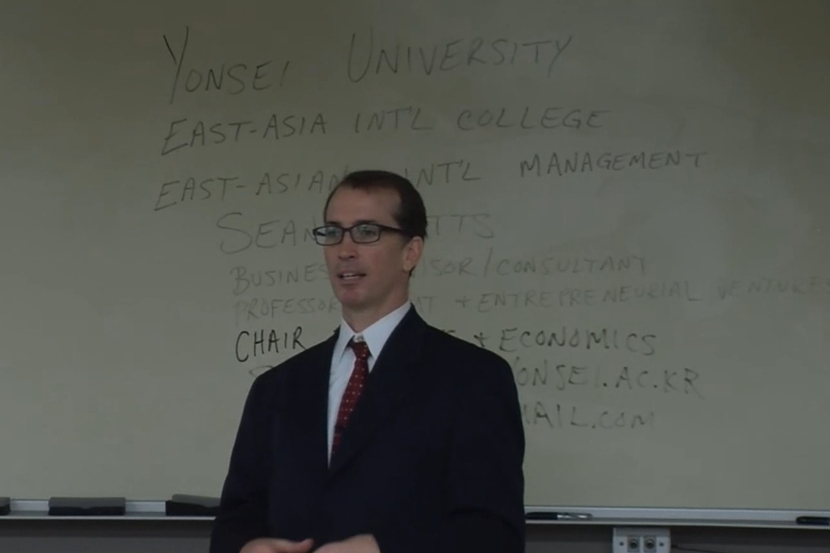이 논문은 중국, 인도네시아, 캄보디아 등 가네포 운동의 핵심 당사국들이 발행한 각종 문서와 회고담, 사진집 등을 활용하여 그 운동의 전모와 실상을 밝힌다. 특히 올림픽과 아시안게임과...
http://chineseinput.net/에서 pinyin(병음)방식으로 중국어를 변환할 수 있습니다.
변환된 중국어를 복사하여 사용하시면 됩니다.
- 中文 을 입력하시려면 zhongwen을 입력하시고 space를누르시면됩니다.
- 北京 을 입력하시려면 beijing을 입력하시고 space를 누르시면 됩니다.
https://www.riss.kr/link?id=A60130698
- 저자
- 발행기관
- 학술지명
- 권호사항
-
발행연도
2012
-
작성언어
Korean
- 주제어
-
KDC
911
-
등재정보
KCI등재
-
자료형태
학술저널
-
수록면
355-403(49쪽)
- DOI식별코드
- 제공처
- 소장기관
-
0
상세조회 -
0
다운로드
부가정보
국문 초록 (Abstract)
이 논문은 중국, 인도네시아, 캄보디아 등 가네포 운동의 핵심 당사국들이 발행한 각종 문서와 회고담, 사진집 등을 활용하여 그 운동의 전모와 실상을 밝힌다. 특히 올림픽과 아시안게임과는 구분되는 독자적인 가치와 지향에 주목하여 1950~60년 대 아시아(운동)의 맥락 속에서 접근할 것이다. 이를 통해 아시아 내부에서 다기한 지역 구상이 분화하여 길항하고 있었음을 확인할 수 있을 것이다. 즉 아시아는 냉전 의 균열선에 따라 동서대립 구도를 복제한 것이 아니라, 중소분쟁의 파장과 중인갈 등의 착종 속에서 한층 복합적인 분화를 노정했었다. 그 복수의 갈래 길의 교착점에 가네포가 자리하고 있던 것이다. 이를 통해 그간 막연히 동일시되었던 AA운동과 비동맹운동, 제3세계운동의 차이를 분별하는 단초도 발견할 수 있다. 가네포를 소재 로 삼는 본 연구가 ``죽의 장막`` 너머 활달했던 또 다른 지향의 아시아 건설 운동사 를 실감나게 전달하는 기회가 되기를 바란다. 학문적 차원의 ``후기냉전``을 청산하고 냉전과 아시아를 종합적이고 총체적으로 접근하는 탈냉전의 과업에 일조할 수 있기 를 기대하는 것이다. 나아가 ``반체제 사회운동으로 점철되었던 아시아의 60년대를 중국과의 관계 속에서 고찰``하는 데에도 작은 실마리를 제공할 수 있다면 좋겠다.
다국어 초록 (Multilingual Abstract)
The Games of the New Emerging Forces (GANEFO) were the games set up by Indonesia in late 1962 as a counter to the Olympic Games. Established for the athletes of the so-called “emerging nations” (mainly newly independent socialist states), GANEFO m...
The Games of the New Emerging Forces (GANEFO) were the games set up by Indonesia in late 1962 as a counter to the Olympic Games. Established for the athletes of the so-called “emerging nations” (mainly newly independent socialist states), GANEFO made it clear in its constitution that politics and sport were intertwined; this ran against the doctrine of the International Olympic Committee, which strove to separate politics from sport. The IOC decreed that the athletes attending GANEFO would be ineligible to participate in the Olympic Games. Indonesia established GANEFO in the aftermath of IOC censure for the politically charged 4th edition of Asian Games in 1962 in Jakarta which Indonesia hosted and for which Taiwan and Israel were refused entry cards. The IOC`s eventual reaction was to indefinitely suspend Indonesia from the IOC. This was the first time the IOC suspended one of its members. The period after 1956 was marked by serious setbacks for the Soviet Union, most notably the breakdown of the Sino-Soviet alliance, beginning the Sino-Soviet split. Mao had defended Stalin when Khrushchev attacked him after his death in 1956, and treated the new Soviet leader as a superficial upstart, accusing him of having lost his revolutionary edge. For his part, Khrushchev, disturbed by Mao`s glib attitude toward nuclear war, referred to the Chinese leader as a “lunatic on a throne”. After this, Khrushchev made many desperate attempts to reconstitute the Sino-Soviet alliance, but Mao considered it useless and denied any proposal. The Chinese-Soviet animosity spilled out in an intra-communist propaganda war. Further on, the Soviets focused on a bitter rivalry with Mao`s China for leadership of the global communist movement. As a result of the Sino-Soviet split, tensions along the Chinese-Soviet border reached their peak in 1969, and United States President Richard Nixon decided to use the conflict to shift the balance of power towards the West in the Cold War. The Chinese had sought improved relations with the Americans in order to gain advantage over the Soviets as well. In February 1972, Nixon announced a stunning rapprochement with Mao`s China by traveling to Beijing and meeting with Mao Zedong and Zhou Enlai. At this time, the USSR achieved rough nuclear parity with the United States; meanwhile, the Vietnam War both weakened America`s influence in the Third World and cooled relations with Western Europe. Although indirect conflict between Cold War powers continued through the late 1960s and early 1970s, tensions were beginning to ease.
동일학술지(권/호) 다른 논문
-
구준(丘濬) 『가례의절(家禮儀節)』의 『가례(家禮)』 재구성에 대한 고찰
- 성균관대학교 대동문화연구원
- 정현정 ( Hyun Jung Chung )
- 2012
- KCI등재
-
오규 소라이와 다자이 슌다이의 논어 주석 -『논어징』에서 『논어고훈』, 『논어고훈외전』으로
- 성균관대학교 대동문화연구원
- 이기원 ( Ki Won Lee )
- 2012
- KCI등재
-
1790년, 안남(安南) 사신(使臣)의 중국 사행(使行)과 그 의미(意味)
- 성균관대학교 대동문화연구원
- 김영죽 ( Young Jook Kim )
- 2012
- KCI등재
-
『임원경제지(林園經濟志)』를 통해 본 서유구(徐有구)의 일본 인식 -『화한삼재도회(和漢三才圖會)』를 인용한 사례를 중심으로
- 성균관대학교 대동문화연구원
- 조창록 ( Chang Roc Jo )
- 2012
- KCI등재
분석정보
연관 공개강의(KOCW)
-

동아시아에서의 역사 인식과 화해(The Historical Recognition and Reconciliation in East Asia)
K-MOOC 경남대학교 이상만,조진구 -

동아시아에서의 역사 인식과 화해(The Historical Recognition and Reconciliation in East Asia)
K-MOOC 경남대학교 이상만,조진구 -

동아시아에서의 역사 인식과 화해(The Historical Recognition and Reconciliation in East Asia)
K-MOOC 경남대학교 이상만,조진구 -

동아시아에서의 역사 인식과 화해(The Historical Recognition and Reconciliation in East Asia)
K-MOOC 경남대학교 이상만,조진구 -

동아시아 사업 경영
연세대학교 션 와츠





 KCI
KCI KISS
KISS


